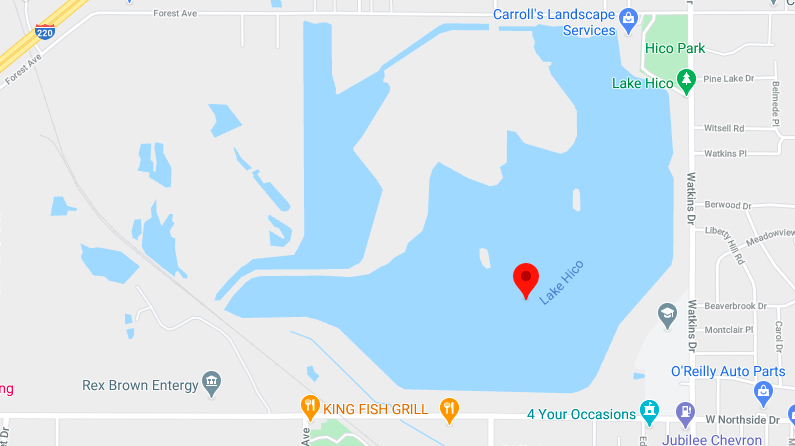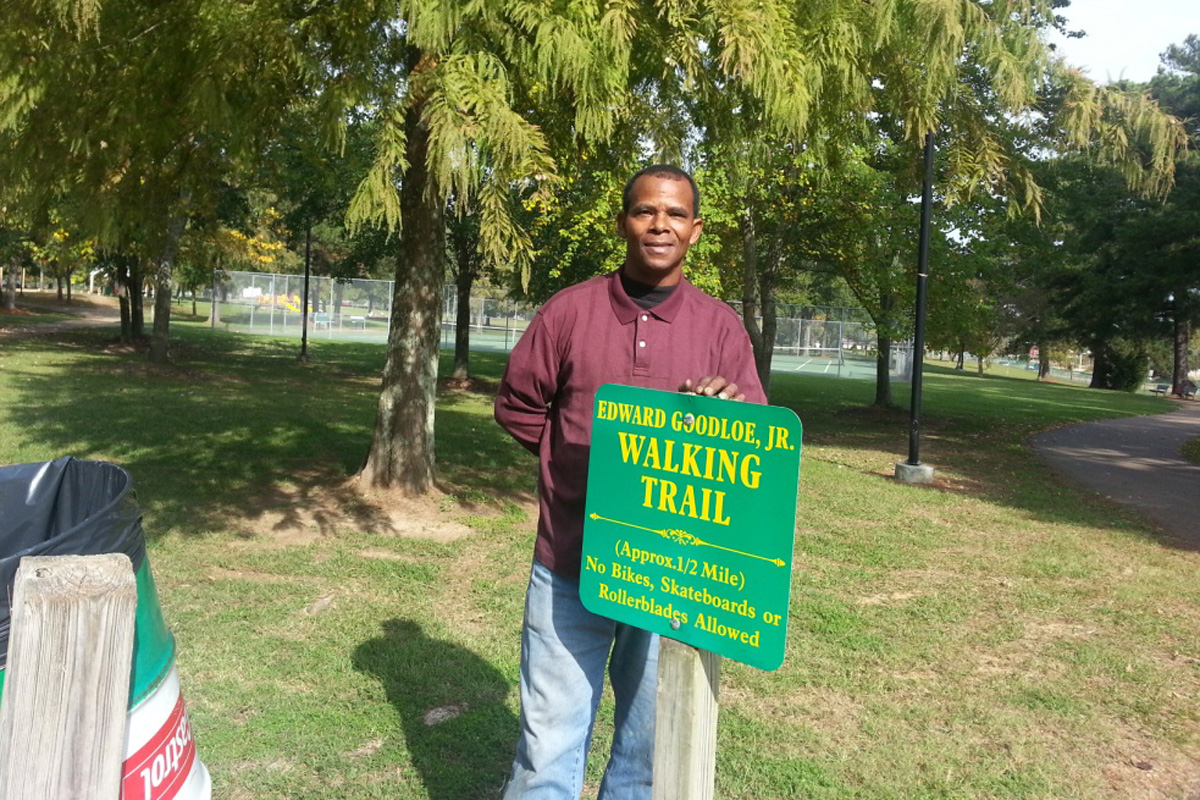Near the intersection of Northside Drive and Watkins Drive in the capital city is Lake Hico; its name is an amalgamation of Hinds County, and it covers 380 acres with a gate separating it from a city park. Today, a multitude of children of all races play and laugh at the park. But at one time in history, during the Jim Crow Era, the park and lake were for whites only.
Ward 2 Councilman Melvin Priester Jr.’s mother told him stories of how the lake resembled an old movie. White people water skied and rowed their boats, and there was even a yacht club.

“It looked like the greatest time in the world was being had by the white people at Lake Hico. It was a real sense of indignity that you could see people out there having this great time and being denied because of the color of your skin,” Priester told the Mississippi Free Press.
In 1968, the City of Jackson closed the lake and swimming pools around the city to avoid integrating them, and the park closed in 1975 for the same reason. If white people could not solely have these facilities to themselves, then no one would be able to enjoy them. By then the Ross Barnett reservoir was open in nearby Madison County, named for one of Mississippi’s most well-known white-supremacist governors, and the Jackson Yacht Club and other water recreation for white people had shifted to the new reservoir in 1966. In fact, the Yacht Club’s official burgee pennant was a variation of the classic Confederate flag until it changed in 2001.
“For Black people of a certain age in Jackson, Lake Hico is very painful emotionally because it was (an example) of how the state would spend all kinds of money for white people, but when it came time to share, they would rather close it down to spite everyone than try to find ways to make these assets available for the entire citizenry of Mississippi,” Priester said.
Today, the lake is still closed, but the park was reopened, and children of all races can use it. But this may never have been possible without the efforts of civil-rights activist Dr. Flonzie Brown-Wright and her late son, Edward Goodloe Jr. They rebelled against the status quo, bringing lasting change that various generations of children can now enjoy.
Wading In Forbidden Water
Born and raised in Farmhaven and Canton, Miss., both in Madison County, Dr. Flonzie Brown-Wright knows all too well the ugliness of racism. Everything from schools to housing was segregated, and Black people did not have the opportunity to own their own businesses except in one section of Canton, she said.
“There’s a place in Canton called the Hollow, and in the Hollow, that’s where all the Blacks had all their businesses. I came up in a time where Black women could not go “uptown” and things of that nature,” she told the Mississippi Free Press.

Brown-Wright said her parents always tried to protect her from the ugliness of racism, reinforcing the notion that she and her siblings were not inferior to anyone. However, this made her ignorant of the fight for civil rights. But she learned quickly and joined the movement after spending time caring for a sick relative in Biloxi on the Gulf Coast.
There she met Black attorneys and civil-rights activists Carsie Hall, R. Jess Brown and Jack Young. Carsie Hall served as legal counsel for the Mississippi chapter of the NAACP and was the president of the Jackson chapter of the NAACP. R. Jess Brown was a civil rights lawyer to James Meredith, fought against segregation laws and filed the first civil rights lawsuit in Mississippi in the 1950s. Jack Young was a self-taught civil rights activist who became a leader in the legal battles in Mississippi.
“I served them as a waitress,” Brown-Wright said. “Jack Young said he had not seen me at the meetings and wanted to know why. … . Well, I didn’t know anything about civil rights, but I did start attending the meetings, and I did start participating in the wade-ins on the Gulf Coast.”
Until two Black men and five children led the first wade-in on a Biloxi beach on May 14, 1959, Black people had to stay off beaches and could not swim in the waters alongside white people on Mississippi’s Gulf Coast.
When the budding activist returned home to Madison County from the coast, Charles Evers taught her how to organize and help register people to vote. Soon, she was leading her own marches and getting people registered. This led her to collaborating with other leaders like Rev. Jesse Jackson, C. Delores Tucker and the late John Lewis. Canton, in fact, became a major organizing hub for the Civil Rights Movement.
Organizing and fighting for equal rights quickly became ingrained in Brown-Wright. So when she and her family moved to Jackson, she was more than equipped to handle the discimination that would ensue, including at Lake Hico in 1974.
‘Our Taxes Were Paying for the Upkeep’
“When I came from Canton to Jackson, my son was 14 years old and we lived right around the corner from Lake Hico,” she told the Mississippi Free Press. “My son was an adventurous kid, and he took his bike and went around the corner. He saw white boys playing baseball. He didn’t think these are all white people, I can’t do this. He wanted to come and try out for the softball team, so he went up to the gate and asked the coach.”

Brown-Wright said the softball coach gave her son, Edward Goodloe, the run-around to get an application, but they still wouldn’t let him join. She did some digging and found out that then-Mayor Russell Davis was paying for the Servian Club Youth League’s utilities, buying their uniforms and that he was also paying the coaches, she said.
Her son went back to try again. When Edward still did not make the team, Brown-Wright filed a lawsuit in 1975 on his behalf to integrate the park and the lake. In retaliation, the City closed the park.
“At first, the City of Jackson tried to deny me because they thought I wanted some money. I never asked for any money, and I never got any money. I just wanted it open for everybody to be able to enjoy it since our taxes were paying for the upkeep,” she said.
Brown-Wright said the potential backlash that could ensue from the lawsuit did not bother her in the least because people who disagree with her have never intimidated her.
“I just do what I think is right because I always want to be on the right side of history,” she said.
Following integration, the park was eventually reopened on March 2, 1985, but the lake still remains closed. In 2013, the City of Jackson and the now-deceased Mayor Chokwe Lumumba implemented a resolution to name a walking trail at Lake Hico after her son called Edward Goodloe Jr. Walking Trail. At each entrance of the park is a green sign with his name on it, indicating the length of the trail.

“People ask me all the time, ‘how did you become this great leader?’” Brown-Wright said. “I’m no great leader. I’m just a person committed to doing what I think is right. If you do the work, people will know who is doing the work. I call myself a foot soldier,” the long-time civil rights activist said.
Unfortunately, Edward Goodloe Jr. passed away in 2014 from a massive heart attack, but his legacy still lives on in the walking trail.
“We laid the foundation for you all. Each generation has an assignment, and it’s up to you all to pick up the torch from where we’re leaving off to carry on the message of hope and that people are treated like decent human beings,” Brown-Wright said.
‘A Big Challenge’
Though Lake Hico was initially closed due to racism, it continues to remain closed mostly due to environmental reasons, Councilman Priester said. The lake, which is artificial, was a cooling pond built in the 1950s on 16th-section school land in Jackson. The lake provided water to the Rex Brown Plant, which generated electricity with steam, and is still used that the same purpose for the power plant next to it.
A five-mile pipeline runs from the Pearl River to Lake Hico, unlike naturally occurring lakes where there is a river naturally flowing water into it. Most water that enters the lake is rainfall or pumped into it, the councilman said.
Under today’s state and federal environmental law, a cooling pond for a power plant cannot be used recreationally, he said.

“A power plant runs hot, so they suck in cool water from their pond to cool down their machinery and then spit out warm water back into the lake. A cooling pond will often have an elevated temperature, which can often lead to all sorts of microbes and algae growing in a cooling pond that makes it unsafe for recreational use,” Priester said.
A dam keeps the water in the lake, unlike most reservoirs that have a spillway where water is poured into it to keep water levels low, he explained.
“You don’t want water spilling over the top of the dam because then the dam will collapse. Lake Hico does not have a spillway, which means there’s no easy way to control the level of water when it gets too high,” he said.
The State of Mississippi and Jackson Public Schools own the lake and they have leased this land to Entergy, which has had the license to possess and operate the lake.
The company can siphon the water out of the lake to control water levels and have staff to maintain the lake and check those levels.
Future of Lake Hico Uncertain as Entergy Dismantles Plant
But now that Entergy is terminating its lease agreement and dismantling the plant on that land, the future of Lake Hico is up in the air, the Ward 2 councilman said.
“That lease pays Jackson Public Schools approximately $300,000 a year. Maintenance and upkeep on this lake are about $100,000 a year according to Entergy. I have no idea how much liability insurance would cost,” Priester said.

Keeping the lake would make JPS responsible for all maintenance costs on the dam, the pumping system, the five-mile pipeline and liability insurance. To use the lake for recreational use would mean getting licenses from the Mississippi Department of Environmental Quality and testing the lake for safety reasons, he said.
With the City already losing money from the terminated leasing agreement, it runs a huge financial risk if it pursues the option to make Lake Hico open and ready for recreational use. Right now, the JPS superintendent and the board are working with different stakeholders on what is next for Lake Hico, he said.
“We are exploring a variety of options right now on what to do with Lake Hico. As much as we’d like to open it up for recreational uses, that is going to be a very big challenge for us to go down that road,” Priester said.
In a few months, Entergy will be finished dismantling the Rex Brown plant, so the clock is ticking on what decision should be made for the future of Lake Hico, he said.
“While we have a bunch of other things on our plate, this is very much a front-burner issue for the JPS, the city, the county and state leaders,” the councilman said.






